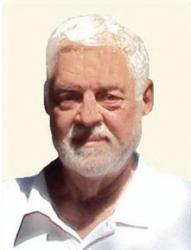Fifty years ago, I was one of 872 students who graduated from Arthur Hill High School in Saginaw, Mich. Born in 1946, I and my fellow students were the vanguard of the baby boom. Over the next half-century, we witnessed a cultural revolution in America.
In 1964, Ford introduced the Mustang and cars became more than just transportation; folk music fused with rock and roll to produce the likes of Simon and Garfunkel, the Byrds, the Rolling Stones, the Beatles, and Bob Dylan; a young boxer named Cassius Clay became a media star and ushered in the era of millionaire athletes; we were fighting the cold war with Russia and Viet Nam was ramping up as America assumed the role of world policeman; the Civil Rights movement was bringing America face-to-face with racial injustice; and the birth control pill brought about a sexual revolution in which sex became recreation rather than just procreation.
Some say we “boomers” caused these changes. Perhaps we did, but most of us were simply passive observers as the parade rolled by.
My trip back in time began with a flight to Buffalo, N.Y., where my wife, Cathy, and I joined up with my high school buddy, Bill Kelly, and his wife Diane, to tour Niagara Falls. Bill and Diane live in Biloxi, and we get together every couple of months.
Bill and I go back to junior high school. He took over my paper route. We delivered the Detroit Free Press on our bikes at 4:30 in the morning, often in sub-zero temperatures.
After graduating from high school. we worked together on the assembly line in a GM plant until our draft notices came in the mail. I went into the Army, while Bill joined the Air Force and made a 27-year career of it.
We stayed on the Canadian side of the falls. Crossing the U.S.-Canadian border is not much different than crossing from Louisiana to Texas, except one must stop at a booth where border patrol asks questions like: “Where are you going?” “How long do you plan to stay?” and “Do you have any explosives in your trunk?” Unless you’re an idiot and get tripped up by these questions, they wish you a good trip and wave you on your way.
The most notable differences between the two countries are the money. (Canada has eliminated its pennies and one-dollar bills, and added a two-dollar coin); the prices (gas is $1.35 a liter, which is equivalent to $5.10 a gallon, so most Canadians along the border fill up their tanks in the U.S.); and the signs (just about everything is printed in English and French because Quebec is a French-speaking province).
After going over, under, around and through the falls for three days, we set off across Ontario to our destination, Saginaw, Mich. Saginaw Bay forms the “thumb” of Michigan, and the Saginaw Valley stretches 100 miles from the bay south to Detroit. At the turn of the last century, Saginaw was known as the “lumber capital of the world,” and our high school’s teams were called the Lumberjacks.
The tall pines of Michigan were chopped down by plaid-clad axmen, and the timber shipped to the rest of the world from Saginaw via the Great Lakes.
When cement, steal and oil replaced wood as construction material and fuel, the lumber barons of Saginaw put their wealth into the next big thing … automobiles. Ford Motor Company was based in Detroit, but General Motors spread its plants along the Saginaw Valley, through towns like Pontiac, Cadillac, Flint and Saginaw.
When Bill and I graduated from high school, the auto industry in Michigan was in its Heyday. Saginaw had five huge plants making auto parts; today there’s just one, and it’s owned by the Chinese.
During our stay, the front page of the local newspaper reported the city’s progress in demolishing 950 abandoned homes in the hopes of decreasing crime and raising property values. (The project was funded by an $11.2 million federal grant). That’s quite a contrast with Lake Charles, where we are anticipating $100 billion in new investment and trying to figure out how to house the workers and deal with the projected population growth.
My classmates who went to work in the auto plants retired 20 years ago with generous union pensions. Most of them acknowledge that the unions made Michigan’s auto industry uncompetitive, and few hold out any hope that the golden age of automobiles will someday return to Michigan. The billions of dollars the federal government spent on “cash for clunkers” and the GM bailout did little to reverse the de-industrialization of the state.
The reunion was a blast. I saw old buddies now scattered around the country whom I hadn’t seen in 50 years. There were a lot of “Do you remember when …” stories, many involving beer and disciplinary actions by the principal. (They could paddle students back then, but “paddle” is too modest a term for the boards with holes drilled in them wielded by a coach.)
I come from a German family that settled in the area in the mid 1800s, and had seven cousins of varying degrees in my graduating class, so there was also a lot of genealogy tracing going on.
Of course we pledged to stay in touch and maybe even get together again.
Bill and I have the advantage of living near New Orleans, a city everyone seemed to want to visit.
After the reunion, we headed up to my bother’s cottage. (“Cottage” is Yankee-speak for “camp.” A cottage can be anything from slightly larger than an outhouse to a minor mansion, just as long as it’s located on or near water.)
My brother’s cottage is on Lake Huron at the tip of Point Lookout. It was built to look like a boat, with five bedrooms, a galley, several decks and a large “hold” in the basement.
The first day the weather was great: temperature in the 70s, a clear sky, a crisp breeze and the largest moon in 20 years.
Then the storm came. That night, the wind picked up to 45 miles an hour; the temperature fell to the low 50s; six inches of rain fell in one day; and the electricity went out. “How,” I wondered, “can these people routinely deal with three feet of snow, but six inches of rain is a near disaster?” That’s when Bill and I pulled out our Katrina and Rita stories.
Thomas Wolfe wrote that one can never go home again. You can, but it will never be the same as it was when you left.














Comments are closed.